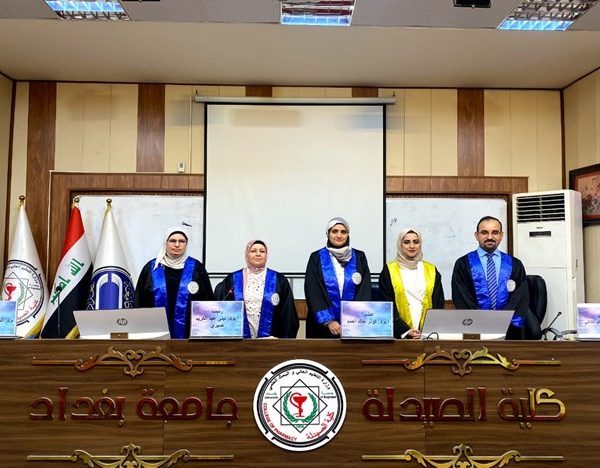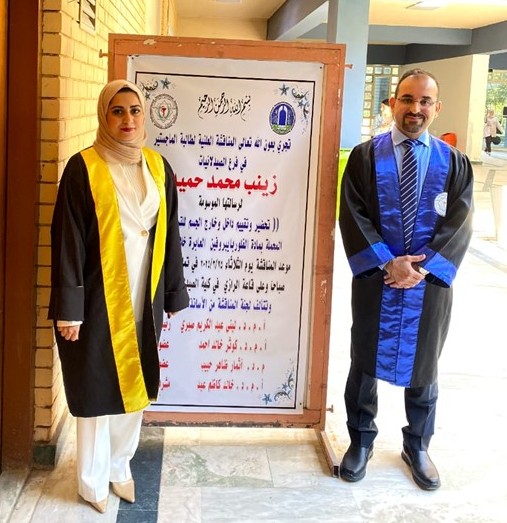The College of Pharmacy discussed the MSc thesis entitled “Formulation, in- vitro and in- vivo characterization of flurbiprofen loaded terpesomal gel for transdermal delivery” by the student Zainab Mohammed Hameed and her supervisor, Assistant Professor Dr. Khalid Kadhem Al-Kinani, at the Pharmaceutics Department.
The study aimed to develop an optimized transdermal delivery system for flurbiprofen to improve patient compliance and reduce gastrointestinal side effects associated with oral administration
The study included the formulation of flurbiprofen into a terpene-enriched ultra-deformable liposomal system, termed “terpesome,” using the thin film hydration technique. A full factorial design was employed to create 23 formulations, optimizing based on vesicle size, polydispersity index (PDI), and entrapment efficiency. The final formula was incorporated into a Carbopol-934-based hydrogel for transdermal application
The study concluded that the optimized formula had a vesicle size of 195 nm, a PDI of 0.3, an entrapment efficiency of 62%, and a zeta potential of -22.26 mV. The transdermal gel exhibited an 88% drug release over 7 hours, a flux rate of 6.5369 µg/cm²/h — significantly higher than the plain flurbiprofen gel’s 0.4981 µg/cm²/h — and demonstrated safety and efficacy in an albino rat model with albumin-induced paw edema.
The study recommended further investigation of the formulation’s long-term stability and clinical trials to evaluate its effectiveness and safety in human subjects, supporting its potential as an alternative route for flurbiprofen administration.




